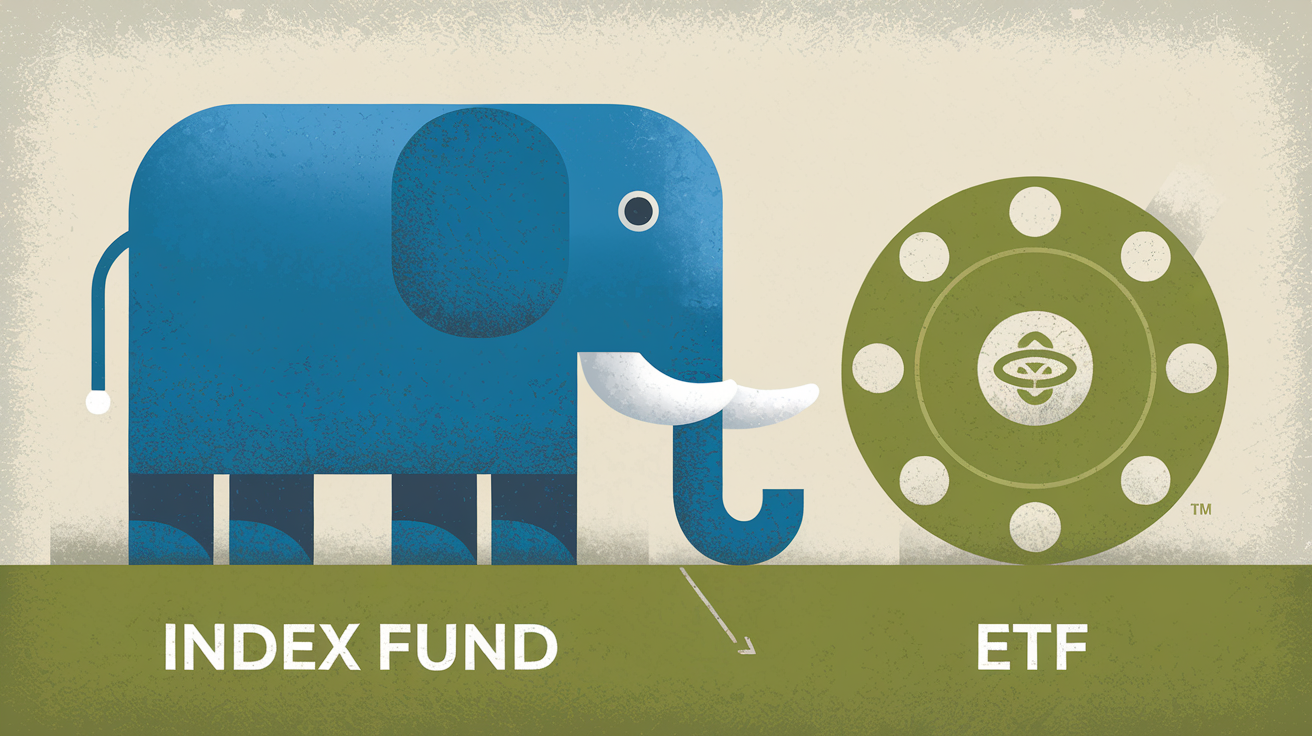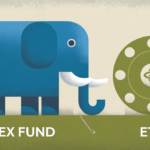Introduction
When it comes to passive investing, Index Funds and Exchange-Traded Funds (ETFs) are two popular options that offer diversification and low costs. However, many investors find themselves wondering which is the better choice. This guide will compare Index Funds and ETFs, highlighting their key differences, benefits, and which might be more suitable for your investment strategy.
What Are Index Funds?
Index funds are mutual funds designed to replicate the performance of a specific market index, such as the S&P 500 or the Nasdaq 100. By investing in an index fund, you are essentially buying a small piece of every company in the index. The goal is to match the market’s performance rather than beat it.
What Are ETFs?
ETFs, or Exchange-Traded Funds, are similar to index funds in that they aim to track the performance of a specific index or asset class. However, ETFs are traded on stock exchanges, like individual stocks, and their prices fluctuate throughout the trading day.
Key Differences Between Index Funds and ETFs
- Trading Flexibility
- Index Funds: Purchased directly from the fund company at the end of the trading day at the net asset value (NAV). No intra-day trading.
- ETFs: Traded throughout the day on exchanges at market prices that may be higher or lower than the NAV. Allows for intra-day trading, stop orders, and limit orders.
- Cost Structure
- Index Funds: Often have slightly higher expense ratios due to management fees. Some may also have minimum investment requirements.
- ETFs: Generally have lower expense ratios compared to index funds. However, investors must consider trading costs, such as brokerage commissions.
- Tax Efficiency
- Index Funds: Can be less tax-efficient due to potential capital gains distributions when the fund manager buys or sells securities.
- ETFs: Tend to be more tax-efficient due to their unique structure, which allows for in-kind redemptions, reducing the likelihood of capital gains distributions.
- Dividend Reinvestment
- Index Funds: Automatically reinvest dividends, which can help grow your investment over time without additional action required.
- ETFs: Dividends are typically paid out in cash, and reinvestment may not be automatic. Some brokers offer dividend reinvestment plans (DRIPs) for ETFs.
- Minimum Investment
- Index Funds: Often require a minimum investment amount, which can range from a few hundred to several thousand dollars.
- ETFs: No minimum investment is required beyond the cost of a single share, making them accessible for investors with smaller amounts of capital.
Advantages of Index Funds
- Simplicity: Ideal for long-term investors who prefer a “set it and forget it” approach.
- Automatic Investing: Many index funds allow for automatic investments, which can help build wealth over time through dollar-cost averaging.
- No Trading Fees: Unlike ETFs, there are no trading commissions, making them more cost-effective for frequent contributors.
Advantages of ETFs
- Lower Costs: ETFs often have lower expense ratios than index funds, making them cheaper to own in the long run.
- Flexibility: Ability to trade throughout the day and use advanced trading strategies like stop-loss orders.
- Tax Efficiency: ETFs generally offer better tax efficiency, which can be beneficial for investors in higher tax brackets.
Which is Better: Index Funds or ETFs?
The choice between index funds and ETFs depends on your individual investment style, goals, and preferences:
- Long-Term Investors: If you’re a long-term investor who prefers a hands-off approach and values simplicity, index funds might be the better choice. They offer ease of use, automatic reinvestment, and no need to worry about intra-day price fluctuations.
- Cost-Conscious Investors: If you’re focused on minimizing costs and maximizing tax efficiency, ETFs could be more suitable. Their lower expense ratios and potential tax advantages make them attractive, especially for those investing significant sums.
- Active Traders: If you like the flexibility of trading throughout the day and want the ability to execute advanced trading strategies, ETFs are the way to go. They provide the best of both worlds—diversification with the agility of stock trading.
- Small Investors: If you’re starting with a small amount of money, ETFs might be more accessible due to their low (or no) minimum investment requirements.
Conclusion
Both index funds and ETFs are excellent tools for building a diversified portfolio and achieving long-term financial goals. The best option depends on your personal investment preferences, financial goals, and how you prefer to manage your portfolio.
Ultimately, some investors choose to include both index funds and ETFs in their portfolios, leveraging the strengths of each to create a well-rounded investment strategy.










